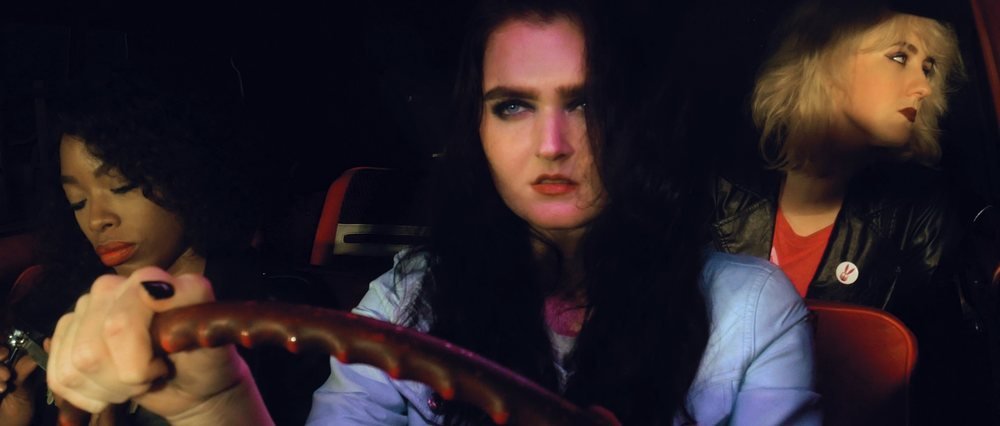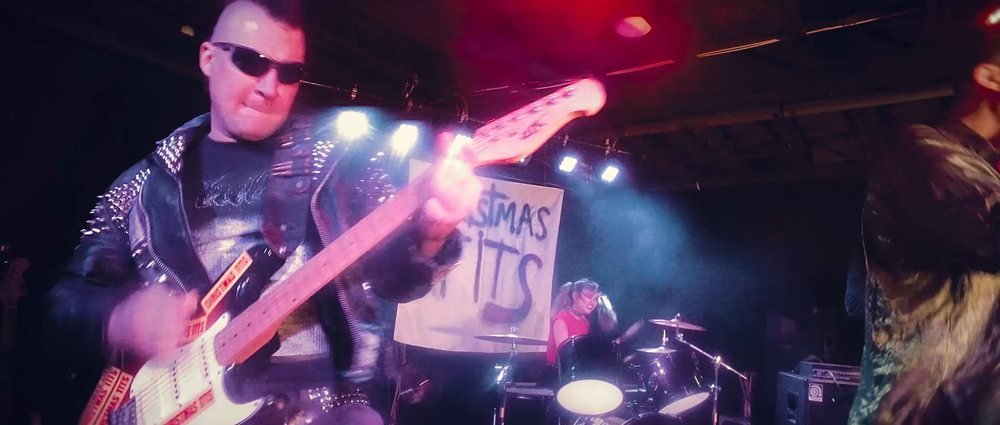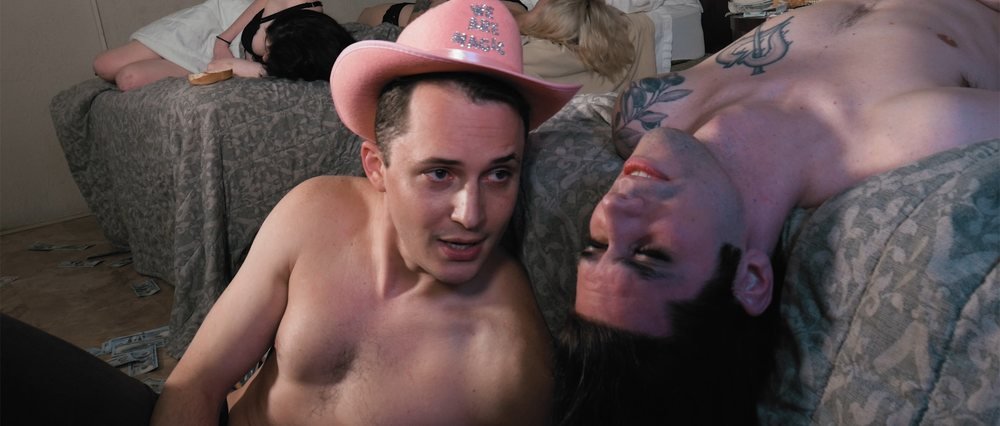The Personal Take: BAD GIRLS (2021)
(Author's Disclosure: I'm an acquaintance of Christopher Bickel, the filmmaker behind this project. After enjoying his debut film The Theta Girl,I contributed to Bad Girls' post-production fund. Thus, I can't write an objective review for this film but I can provide a subjective response that will hopefully provide an interesting complement to more conventional reviews for this film.)

Second films are as fraught with pitfalls as second albums: you lost the advantage of surprise that you had with your first outing and must prove you're more than a one-trick pony. Having obsessions you're consumed by and a personal take on said obsessions can help in coping with such a challenge... and one can argue Christopher Bickel shows these qualities with his second feature, Bad Girls.
The title has a traditional exploitation vibe to it and that's what its storyline offers: we're thrown right into the action as a strip club is robbed of both payroll and drugs by a trio of dancers. The leader is Val (Morgan Shaley Renew), a gleeful psychopath whose Alastair Crowley-styled philosophy could be summed up as "if you want it, take it." Mitzi (Sanethia Dresch) is as down for mayhem as Val but has an independent streak and thinks more strategically. Carolyn (Shelby Lois Guinn) rounds out the trio with a joyful persona that seems oddly innocent despite her propensity for drugs and violence.

Our trio of anti-heroines undertakes a crime spree, spurred on by Val's desire to remake the world to fit their desires. As they rack up profits and a body count, they also delay their across-the-border escape plan to kidnap and seduce rock stars Bard Gainsworth (Cleveland Langdale) and Zerox Rhodesia (Micah Peroulis). Willingly kidnapped hotel night clerk Rusty (Jonathan Benton) also joins the chaos as a sort of mascot. Val's sense of grandiosity grows with the chaos the trio generates, meaning that Mitzi and Carolyn start to chafe under her leadership. At the same time, there's also a pair of special agents, the misogynistic Cannon (Mike Amason) and the more reasonable McMurphy (Dove Dupree), closing in.
The resulting film plays in the same sandbox as The Theta Girl but does so in a different corner. The storyline follows a more conventional progression, making it more a straight homage to exploitation film history. In the plot, you can see elements of the girl gang movie, the Easy Rider-derived "road trip becomes a bummer" film and the crime spree docudrama. Bickel's love for drug trip sequences continues here, most notably in a joyfully lysergic montage filmed at the famous tourist destination South Of The Border, but the kind of characterization-shaping chemical epiphanies seen in The Theta Girl don't happen here.

The characters are familiar types, we're pretty certain what will become of them as the plot hits its marks and this means the seasoned viewer might feel a little slowdown in the second half as the expected beats fall into place. That said, Bickel and co-writer Shane Silman deserve credit for some unexpectedly strong dialogue scenes late in the film where the characters open up about the worst things they've done, allowing for a few beats where there are suddenly real, recognizable dramatic stakes in play.
It's worth noting that Bickel's skill with actors has grown. He gets distinctive performances from his trio of female leads: Ranew shows an intense yet chilly sort of energy, Dresch offsets her with a more modulated take on a femme fatale that harbors a simmering tension and Guinn is manages to make a violent, dangerous character seem oddly sweet. Langdale and Peroulis also impress with performances that are comic in a subtle way, thus offering a balance to the forceful energy of the leads. Elsewhere, Benton brings an unexpected warmth to his comic relief character, Amason deploys a lot of energy for his authoritarian bluster and Dupree adds low-key charm. The bit parts tend to go really broad but there's nice work from Schlockmania favorite Paul Talbot as a would-be womanizer and Ryan Martel in a distinctive turn that I'll leave to viewers to discover.

That said, Bad Girls is largely a style vehicle for Bickel - and Like The Theta Girl, he shows a greater degree of technical polish than you would expect from a film with a five-figure budget. He served as editor and sound designer in addition to his directing/co-writing/co-photographing duties and he exploits the full bag of tricks these roles can access. The frequent driving montages combine distorted angles and frame-rate manipulation with skillfully integrated digital FX that show how the characters perceive their effect on the world around them. There are jolts of noise-rock that occur as violence kicks in and all manner of trippy echo FX during the drug sequences. Bickel's most inspired moment as a stylist here occurs when the agents are going through the records of the three anti-heroines and he utilizes multiple panels, superimposed imagery and digitally animated close-ups of the three leads to make what could have been a purely expository scene visually interesting.
In summation, one could argue that Bad Girls is an exercise in lateral growth for Bickel, the kind of work a filmmaker produces to develop their chops rather than break new ground. That said, there is enjoyment in watching him layer standard elements with his own sense of style to take ownership of his artistic inspirations. If you've ever spent time on Bickel's Facebook page, you'll know he's outspoken about what he does and doesn't like and that same force of will can felt here: every framing choice, juxtaposition and flourish is informed by a singular obsessiveness that reflects its primary creator. If you love the same kind of exploitation material and transgressive pop culture impulses that Bickel enjoys then you'll find some subversive pleasure here.
https://youtu.be/_PAzjOcA3RY

